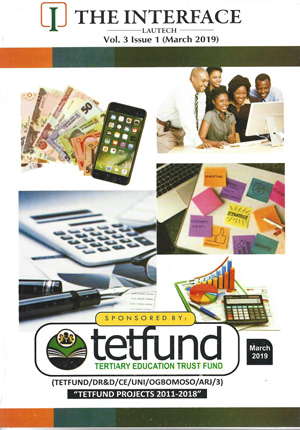Impact of Fiscal Policy Variables and Oil Price Shocks on Sectoral Output Growth in Nigeria: Evidence from Vector Error Correction Model
Keywords:
Fiscal Policy Variables, Oil Price Shocks, Sectoral Output, Vector Error Correction Model, Economic Growth, Macro-EconomicsAbstract
Nigeria reliance on oil production as a source of income has enormous economic ramifications. Agriculture was abandoned in lieu of oil, which became Nigeria's principal source of revenue and was expected to bring great economic growth and wealth. However, there have been sequences of oil price changes over the last four decades, which has impeded Nigeria's macroeconomic objectives.This study looked at the impact of fiscal policy variables and oil price shocks on sectoral output growth in Nigeria: Evidence from Vector Error Correction Model.This study relied on secondary data. The data were sourced from Central Bank of Nigeria (CBN) Statistical Bulletin, National Bureau of Statistics (NBS), World Economic and Financial Surveys for the period of 1981 and 2018 and econometric statistics such as multiple regression and Johansen Co-integration test were used to analyze the data collected. The results showed that government revenue reduces agricultural output out by (6.768981) 6.8 % in the long run, this shows that there was negative relationship between government revenue and agricultural output.Also, one percent increase in government expenditure, reduces agricultural output out (.5488866) by 0.55 % in the long run, this shows that there was a negative relationship between the variables in the long run. Government revenue increases industrial output by 1.2 % in the long run, this shows that there was positive relationship between Government revenue and industrial output Also, one percent increase in Government expenditure, increases industrial output by 2.45 % in the long run, this shows that there was a positive relationship between the variables in the long run.Government expenditure, increases trade and service output by 0.83 % in the long run, this shows that there was a positive relationship between the variables in the long run. One percent increase in external reserve, decreases trade and service output by 0.52% in the long run, this shows that there was negative significant relationship between external reserve and trade and service output in the long run.The study recommends that Government should implement structural reform that will be targeted at eliminating structural inflexibility, enhance production, and promote global competitiveness of our products and services. Such reforms should aim at fashioning institutions to prevent politicians from violating inter-temporal budget constraints, and more generally, from engaging in short-sighted, time inconsistent policies that in the end impasse economic growth.



